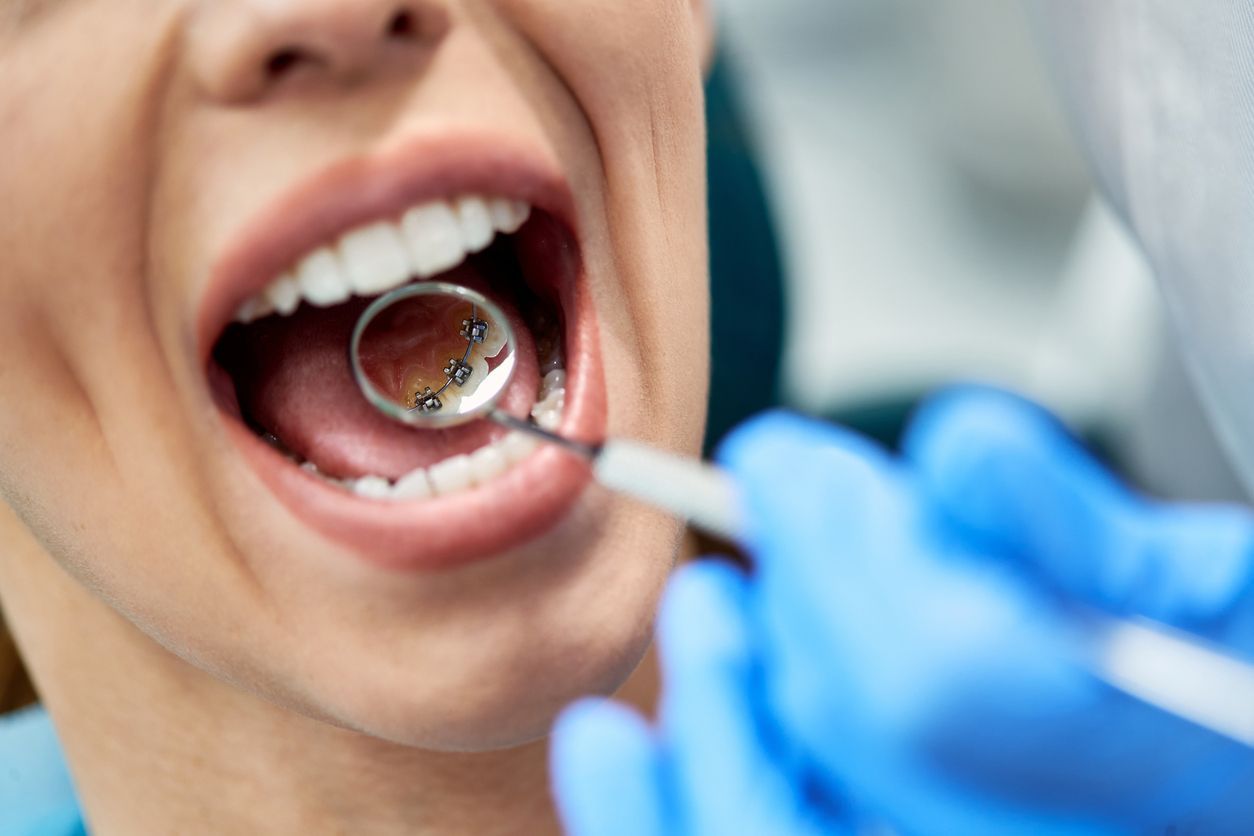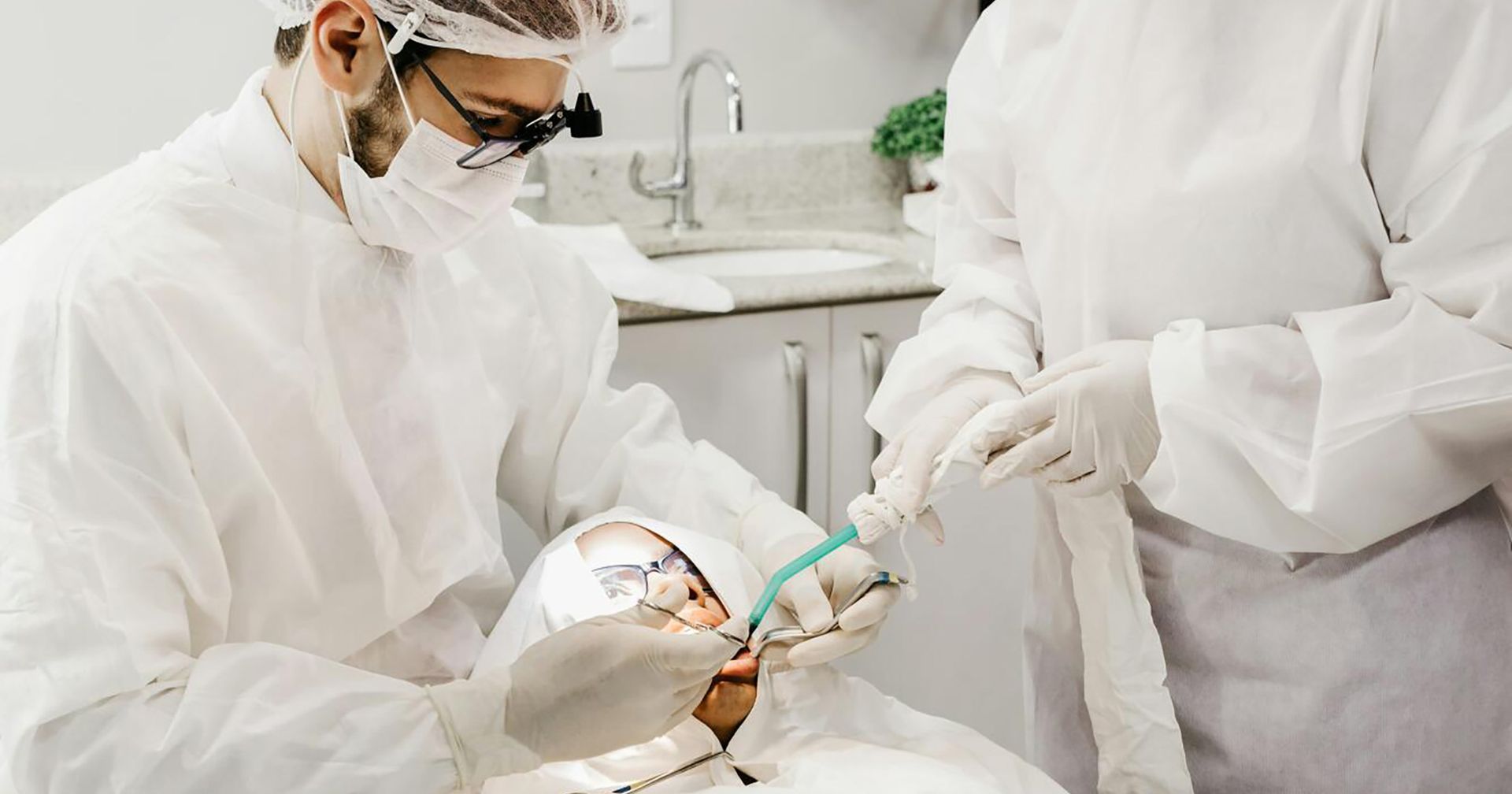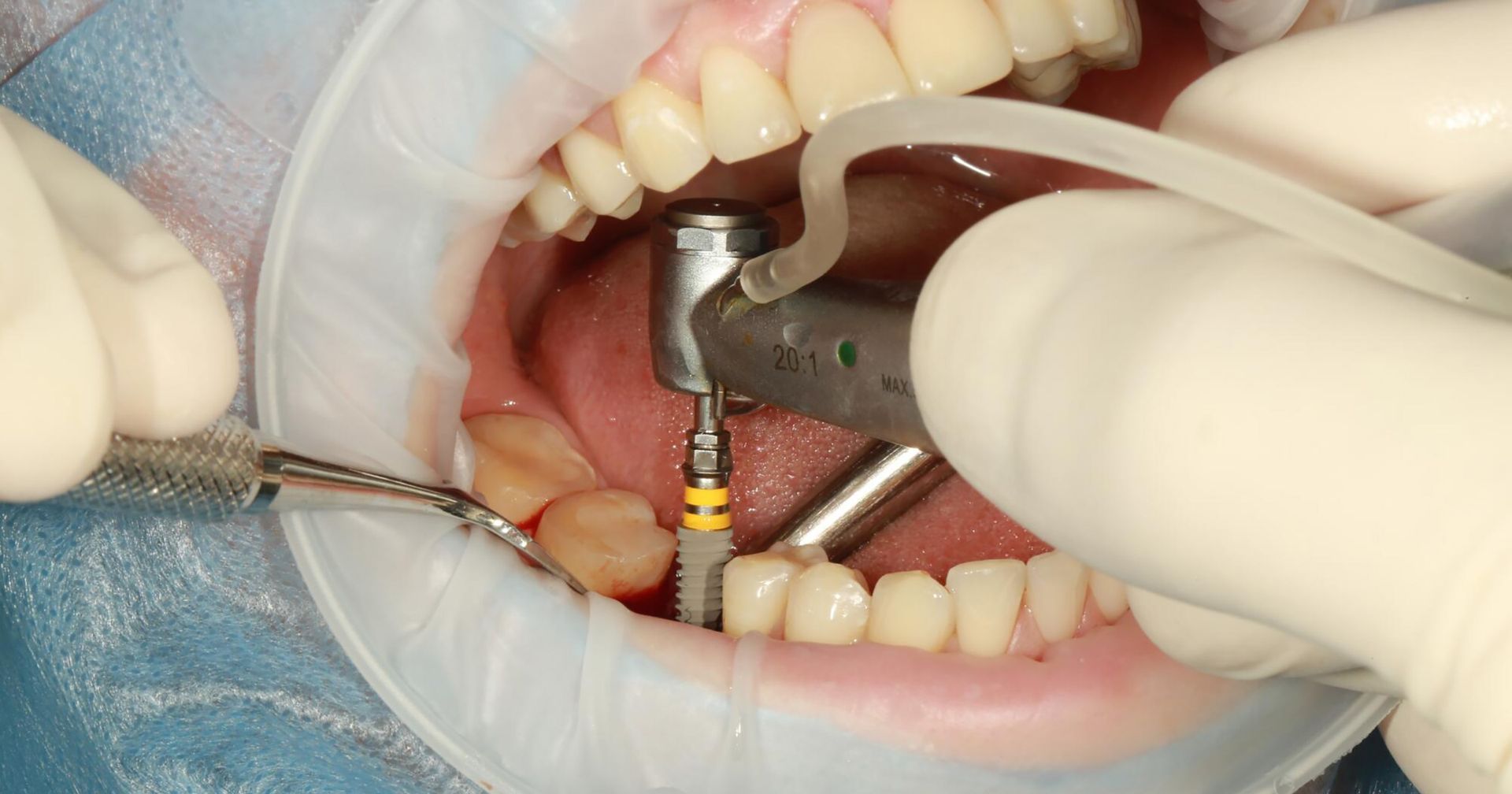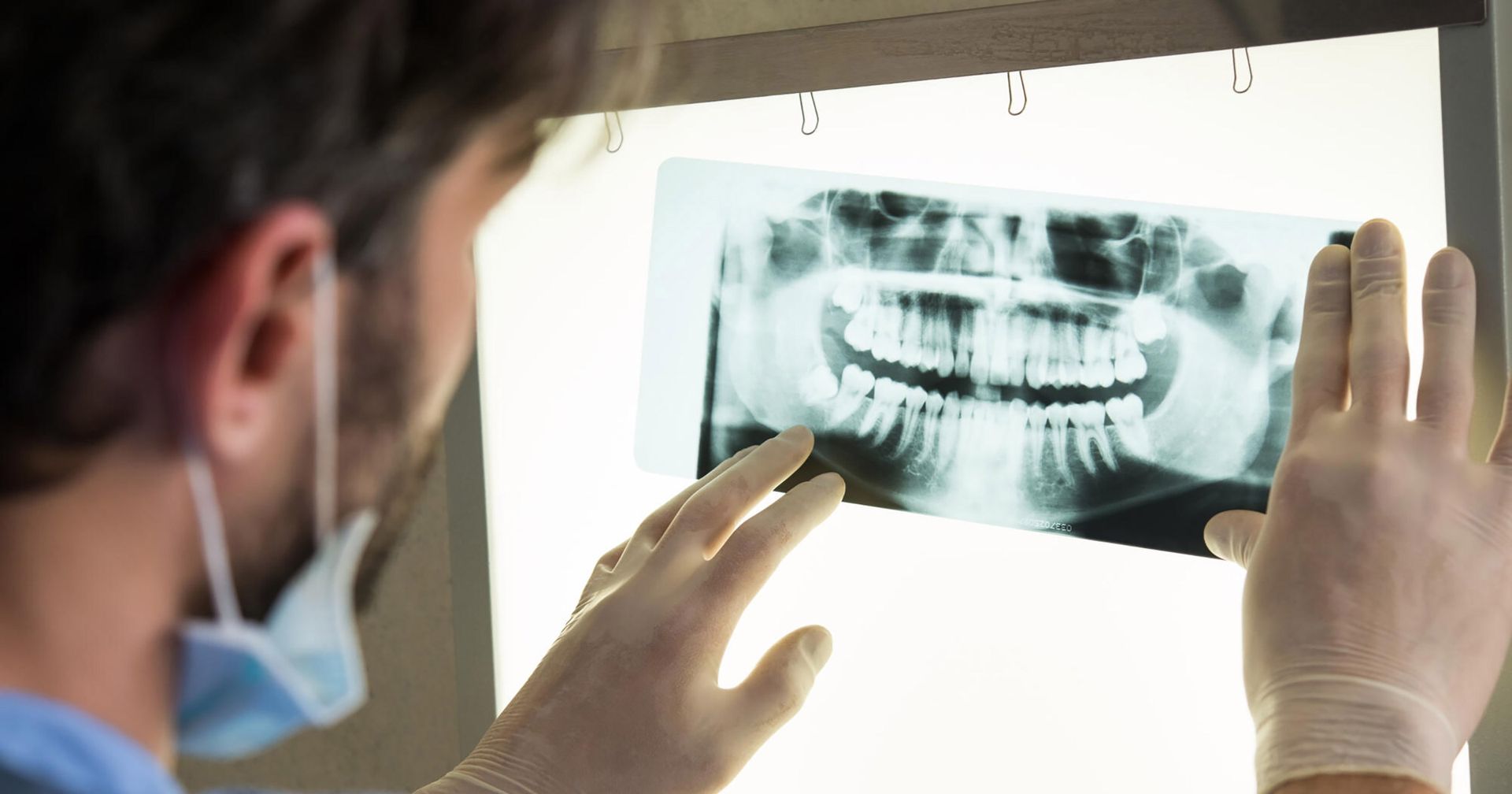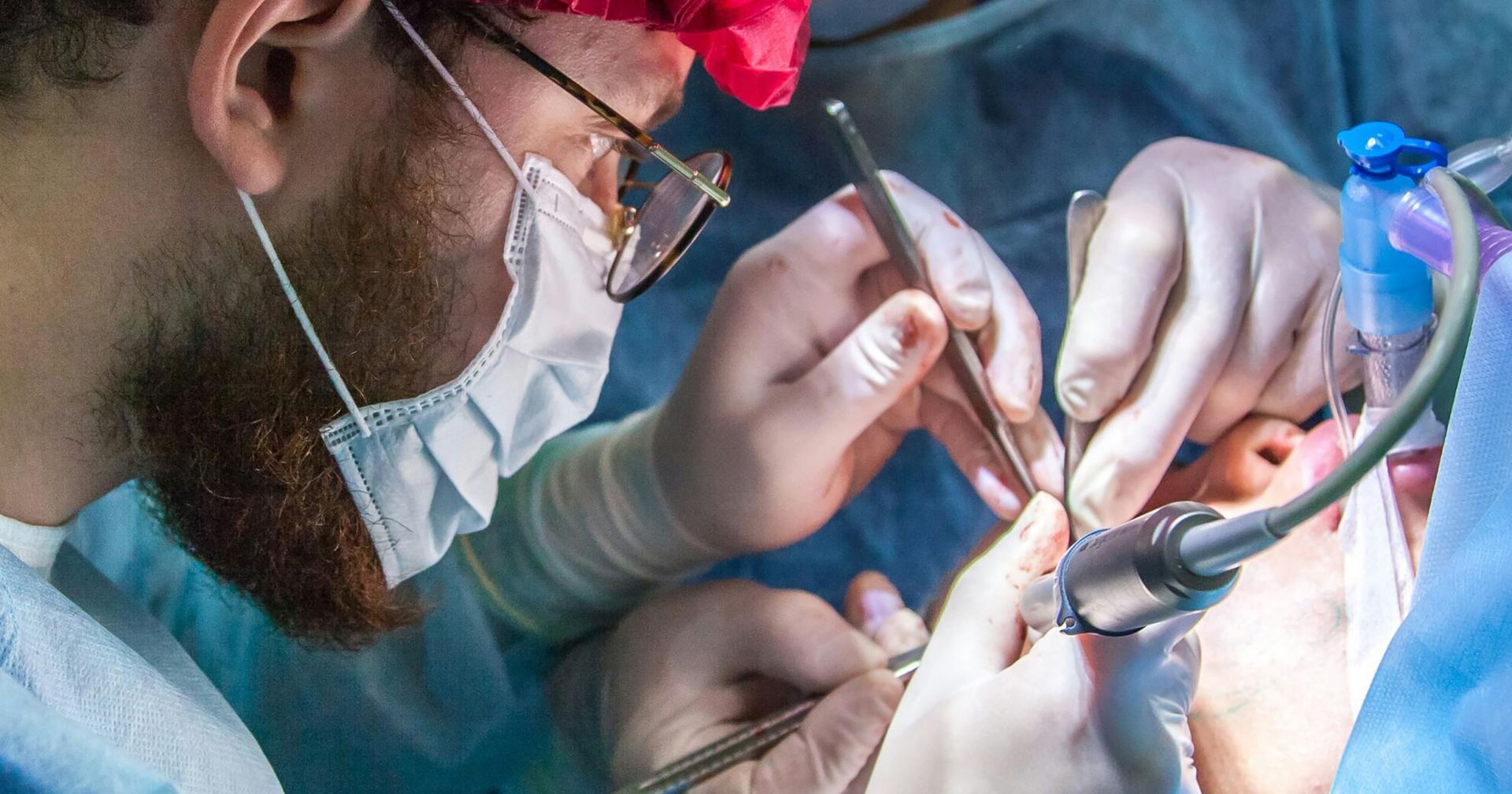Everything You Need to Know About Dental Implants
Dr. Tabas • June 14, 2020
Thinking about dental implants? Learn what dental implants are, if you're a good candidate, what the process is like, and how much it costs.
Approximately 120 million people
in America are missing at least one tooth.
Tooth loss occurs for a variety of reasons, from neglected oral care to gum disease. Gaps in your mouth do not only hinder your smile, but they also make chewing and speaking difficult.
Artificial teeth are an effective solution for tooth loss. But what are dental implants, and how do you get them?
We've compiled everything to know about one of the most popular cosmetic dentistry procedures. Let's explore the advantages of dental implants, types of dental implants, and the dental implant process.
What Are Dental Implants?
Dental implants are a form of tooth root replacement. They provide a solid foundation for artificial teeth.
The bridges are strong and long-lasting. The implant screws into your upper or lower jawbone, so it's unlikely to shift out of position.
There are three parts to a dental implant.
First, an artificial root is inserted in the jawbone. Next, the abutment is connected to create a solid platform. Third, an artificial tooth or bridge is fastened into place.
The procedure creates an effective method for replacing missing teeth. Cosmetic dentistry is becoming more popular, with between 100,000 and 300,000 implants
placed every year.
The Advantages of Dental Implants
Fixing the gaps in your smile boosts your self-confidence. It makes you proud to boast your pearly whites and creates a better first impression.
But there are many more benefits to dental implants. Let's explore these advantages.
They Look and Act Like Natural Teeth
Your new and improved chompers will look and act like natural teeth. They are designed to blend in and help people eat, chew, and speak clearly again.
Unlike dentures, which need to be removed and can slip out while speaking, dental implants become a part of you, so much that many patients have trouble recognizing their artificial teeth from the natural ones.
They Enhance Oral Health
Gaps in your mouth are dangerous for your oral health. They cause remaining teeth to slide out of their positions and create problems with biting.
Bacteria and food particles accumulate in open spaces in your mouth. Since there is no tooth, people often forget to brush the gaps in their mouth. The buildup of bacteria can lead to infections and periodontal disease.
Dental implants fill the passages once and for all. They reduce the risk of bacterial infections and keep your pearly whites in alignment.
They Do Not Decay
Artificial teeth do not decay. That means you don't have to worry about cavities and other tooth problems.
The implants are covered in a zirconia crown. The material is sturdy and will not break down like a natural tooth.
They Are Durable
As long as you adhere to proper dental implant care, your implants should last for years. Most well-cared-for implants last up to 25 years.
Since the implants are fused into your jawbone, they have a low risk of shifting or falling out of place. They are strong, sturdy, and durable.
Types of Dental Implants
Endosteal implants are made from titanium and look like small screws. They are usually placed directly into the jawbone. Endosteal is the most popular type of dental implant.
Subperiosteal implants are designed for patients who do not have a strong natural jawbone. The implants are secured beneath the gums, using the gums for extra support.
Mini implants are a newer type of artificial tooth replacement that is becoming more popular. These narrow implants are used to stabilize lower dentures.
Who Is a Good Candidate for Dental Implants?
A good candidate for this procedure is someone who:
- Is missing one or more of their natural teeth
- Has a strong and healthy jawbone
- Does not have periodontitis or oral cancer
- Adheres to strong oral hygiene practices
- Does not smoke
To qualify for implants, you must exhibit good oral health. Patients should have healthy gums and teeth. The dentist may screen for underlying health disorders, like oral cancer, to ensure the candidate is the right fit for the procedure.
The most important part of qualifying for dental implants
is having supportive jawbone and gum tissues. These structures provide the foundation for the implants. Without strong support, the implants have a higher risk of failing.
Paying for Dental Implants
Check with your insurance company to see if they cover tooth implants.
For a while, many insurance policies did not include cosmetic procedures, which implants were included under. However, many providers are observing long-term health benefits of implants, and some medical insurance plans consider implants essential.
Some patients must file a claim with their insurance provider to get reimbursement for the procedure. You may also have some out-of-pocket expenses along the way.
For those without insurance or who are not covered, many dental offices offer financing options. Talk to your dental provider about your options during your implant consultation.
The Dental Implant Procedure
Getting dental implants typically involved multiple appointments throughout several months. Each process should take less than one hour to perform.
Let's review the steps of the procedure in-depth.
Dental Implant Set Up
Patients first need to set up a consultation with their local dentist. This provides an opportunity for your dentist to evaluate your oral health and ensure you are a suitable candidate for the implants.
During the consultation, your dentist will take X-rays to evaluate your gums and jawbone. Your dentist may also ask about your medical history.
If your oral health is in good condition, you will move forward with scheduling an appointment for your dental implants.
Most dental implant processes involve local anesthesia, so you will need to prepare by eating a light meal two to three hours before your procedure. If you are receiving IV sedation, you will not be allowed to eat anything after midnight the night before your surgery.
Your dentist may prescribe medications and anti-bacterial mouthwash to take a few days before your procedure.
Dental Implant Installation
The first phase of your dental implant procedure is the surgical placement of the implant. Your mouth will be numbed, and an incision will be made to your gums. The implant's root will be fastened to the jawbone.
After adequate recovery, you will return to the dentist. Time in between appointments allows the bone to grow around the implant to make it stronger.
If your implant is secure, your dentist will add the abutment into your mouth. The abutment holds the new tooth.
Patients are sent home to heal for a few weeks. In the meantime, the dentist will use impressions to create a unique replacement tooth (also known as a crown). The artificial tooth will be fastened onto the abutment, and your implants are complete.
Caring for Your Implants
Caring for new dental implants is not hard. Patients must clean them twice per day with a soft-bristle toothbrush. Use a low-abrasive toothpaste to protect the implants from deterioration.
Patients should adhere to strong oral care practices, before and after they receive their new teeth. This means regular teeth brushing, flossing, and rinsing with an antibacterial mouthwash. Don't forget to keep up with regular dental checkups.
The better your oral hygiene, the longer your bridges will last.
Schedule a Dental Implant Consultation
Now that you know everything there is to know about the types of dental implants and the implant procedure, are you ready to schedule your consultation? If so, we can help.
Click here
to schedule an appointment with The Tabas Center for Advanced Dentistry in Philadelphia, PA. We're here to give you implants that restore your smile.

